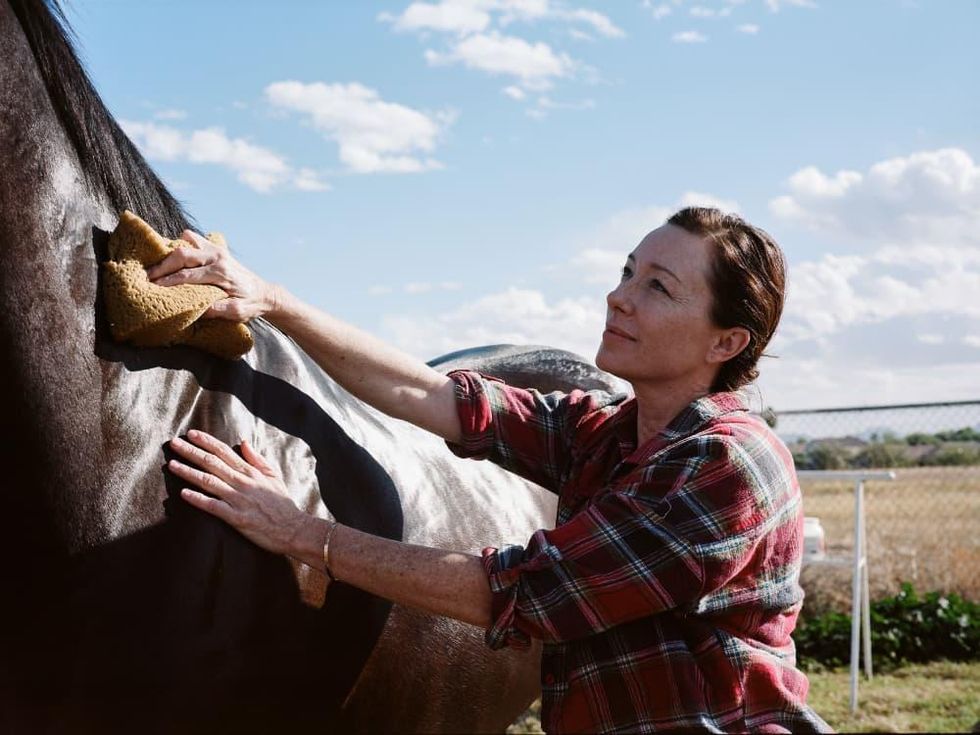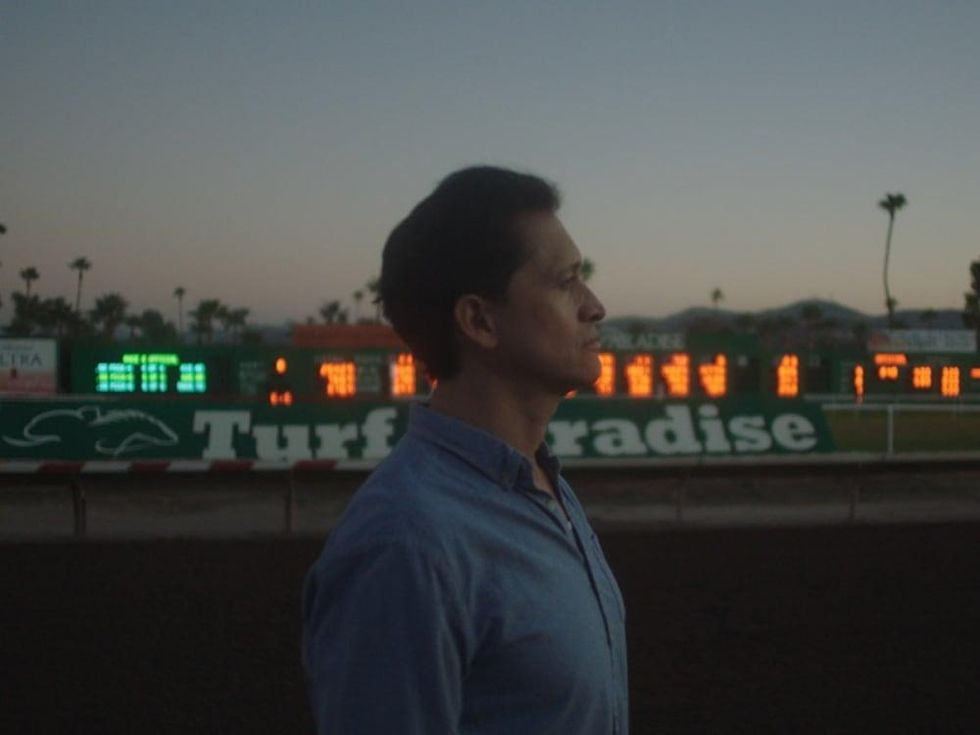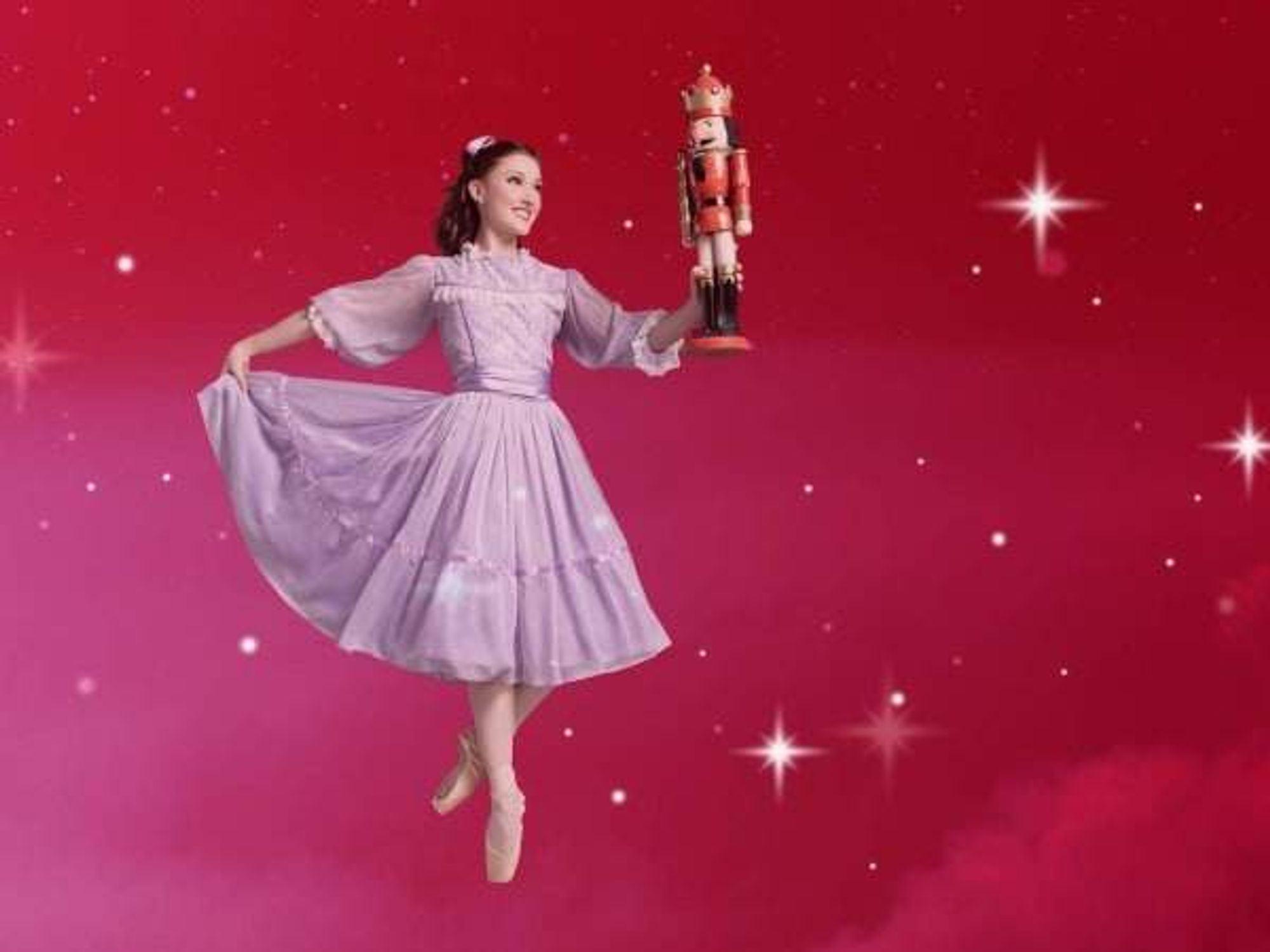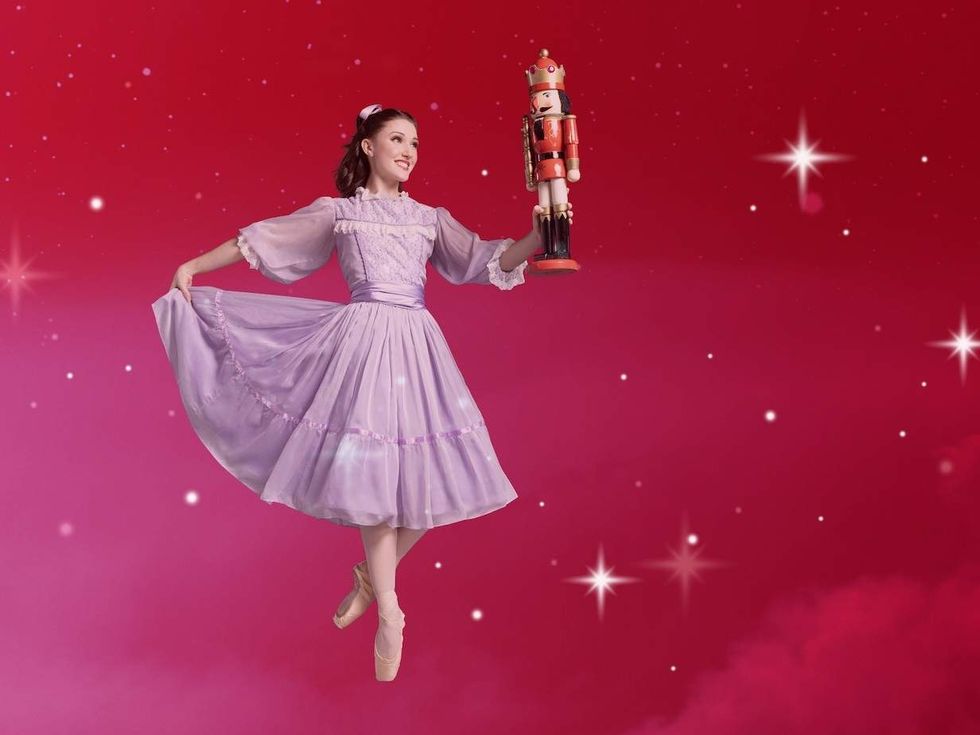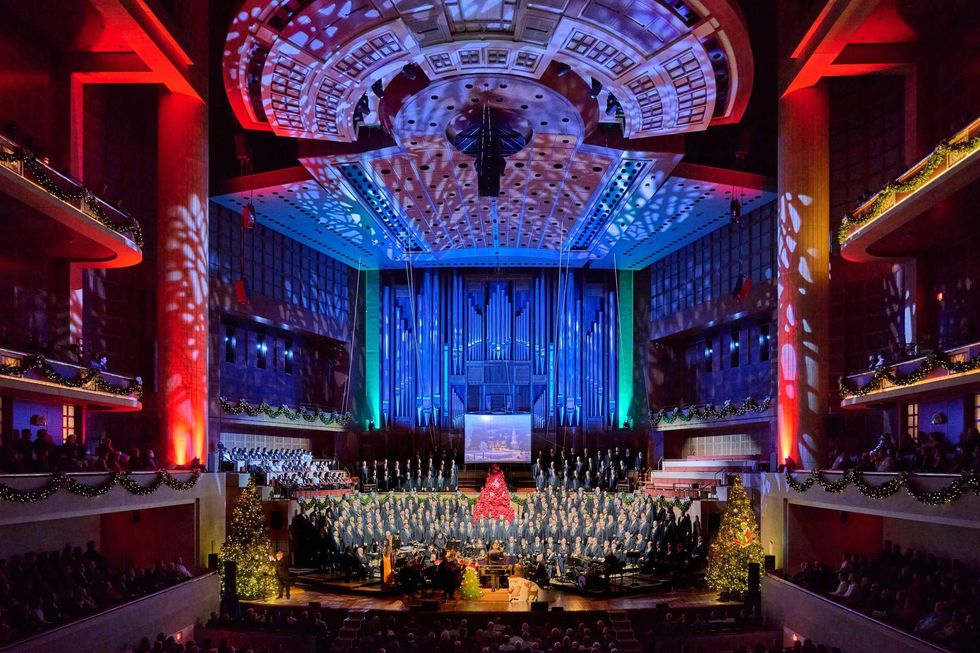There will be lots of new holiday-themed events taking place around Fort Worth this weekend, including four concerts, a theater production, two cabaret shows, an annual Nutcracker, and a parade/festival. Other choices include five other concerts, screenings of an acclaimed new film, and a big college basketball showcase.
Photo courtesy of Texas Ballet Theater
Below are the best ways to spend your free time this weekend. If you want more options, check out the calendar for an even longer list of the city's best events. For a big list of 2025 Christmas lights, go here.
Thursday, December 11
Michael Martin Murphey: Cowboy Christmas
For three decades, Michael Martin Murphey's Cowboy Christmas has been a blend of music, encompassing his numerous Christmas albums, alongside his country and pop hits. The holiday celebration takes the form of a multi-media production, featuring Murphey's renowned Rio Grande Band, dramatic lighting and video, as well as the use of Western Art, master-artist photographs, and cowboy poetry. There will be performances on Thursday and Friday at Arlington Music Hall.
Theatre Denton presents The Sound of Music
The inspirational story of The Sound of Music, based on the memoir of Maria Augusta Trapp, follows a postulate who serves as governess to the seven children of the authoritative Captain von Trapp. It features songs like “Climb Ev’ry Mountain,” “My Favorite Things,” “Do-Re-Mi,” and the title number. The musical runs through December 21 at Theatre Denton.
Rod Wave in concert
The pace at which rapper Rod Wave is releasing albums is unusual in the modern music world. The 30-year-old Florida native got his start in 2016, putting out a series of mixtapes before releasing his debut album, Ghetto Gospel, in 2019. That album was quickly followed by Pray 4 Love in 2020, SoulFly in 2021, Beautiful Mind in 2022, Nostalgia in 2023, and Last Lap in 2024, marking his sixth album in as many years. He'll perform at Dickies Arena.
Ryan Bingham in concert
Americana/roots rock musician (and Yellowstone star) Ryan Bingham is one of those artists whose popularity is belied by his chart performance. He has released seven albums in his career, most recently American Love Song in 2019, with only a couple reaching the top 10 on the Country charts. His biggest success has been winning an Oscar for his song "The Weary Kind" from the 2009 film Crazy Heart. Bingham returns to Fort Worth to play at Billy Bob's Texas.
Friday, December 12
Magnolia at the Modern: Sentimental Value
In Sentimental Value, sisters Nora (Renate Reinsve) and Agnes (Inga Ibsdotter Lilleaas) reunite with their estranged father, the charismatic Gustav (Stellan Skarsgård), a once-renowned director who offers stage actress Nora a role in what he hopes will be his comeback film. When Nora turns it down, she soon discovers he has given her part to an eager young Hollywood star (Elle Fanning). Suddenly, the two sisters must navigate their complicated relationship with their father - and deal with an American star dropped right into the middle of their complex family dynamics. The acclaimed film will screen seven times through Sunday at the Modern Art Museum of Fort Worth.
Amphibian Stage presents A Winter's Cabaret
Amphibian Stage’s annual Winter’s Cabaret returns for an evening of cozy nostalgia, laughter, and a touch of holiday magic. The event will celebrate two local talents: Amber Marie Flores (last seen at ‘Phib' in Juan Garcia), and Zak Reynolds. Under the music direction of Vicky Nooe, the one-hour performance blends humor, tenderness, and song into a feel-good celebration of the season. There will be performances on both Friday and Saturday.
Mid Cities Arts Collective presents A Broadway Christmas Cabaret
Mid Cities Arts Collective's A Broadway Christmas Gala is a holiday showcase that blends the best of Broadway with timeless Christmas classics, creating an evening full of joy, nostalgia, and theatrical flair. From show-stopping numbers to cozy favorites like "White Christmas" and "Santa Baby," the performers will take audiences on a musical journey that celebrates the season with heart and harmony. There will be performances on Friday and Saturday at Platinum Music Complex in North Richland Hills.
Billy Strings in concert
Bluegrass singer/guitarist Billy Strings (and no, that's not his real name) has been at the top of his chosen genre since his debut in 2017. His first album "only" went to No. 3 on the Billboard Bluegrass chart, but each of his subsequent three albums went all the way to No. 1, including Highway Prayers in 2024, which also marked his highest showing yet on the overall Billboard 200. He'll play at Dickies Arena.
Texas Ballet Theater presents The Nutcracker
The Nutcracker is a cherished tradition that offers a world of enchantment where snowflakes swirl, dreams come to life, and holiday magic fills the air. Tchaikovsky’s timeless score and Ben Stevenson, O.B.E.’s choreography awaken the holiday spirit for audiences. Texas Ballet Theater's annual production runs through December 28 at Bass Performance Hall.
Kolby Cooper in concert
Country singer Kolby Cooper came out of the East Texas town of Palestine just three years out of high school, with no label or industry machine in place. Since then, his songs have garnered millions of streams on Spotify, solidifying him as a voice of the future for Texas country music. He released his debut album, Boy From Anderson County To The Moon, in 2022, and just released his second album, Love You, Goodnight. He'll play at Billy Bob's Texas.
Saturday, December 13
Arlington Holiday Lights Parade
Arlington’s annual Holiday Lights Parade is actually much more than just the parade, starting with games and activities at the Arlington Public Library and the First Baptist Church of Arlington North Lawn. There will also be entertainment at Levitt Pavilion, photos with Santa before the parade, and the tree lighting at the Founders Plaza after the parade. The event takes place in the Downtown/University District in Arlington.
Fort Worth Symphony Orchestra presents Elf in Concert
In Elf, Buddy (Will Ferrell) is accidentally transported to the North Pole as a toddler and raised to adulthood among Santa’s elves. Unable to shake the feeling that he doesn’t fit in, the adult Buddy travels to New York, in full elf uniform, in search of his real father. After DNA test confirmation, Buddy and his real father build a relationship with increasingly chaotic (and very comedic) moments. The heartwarming tale of Buddy the Elf will play on the big screen while every note of John Debney’s score is played live to picture by the Fort Worth Symphony Orchestra. The film in concert takes place at Will Rogers Auditorium.
Dustin Lynch in concert
Country singer Dustin Lynch has been big since his debut in 2012, going straight to No. 1 with his self-titled album. Each of his four subsequent albums, including 2022's Blue in the Sky, reached the top 10 and he's had a string of top 10 hits to go along with them. He'll play at Billy Bob's Texas.
Sunday, December 14
Sprouts Farmers Market espnW Women’s Basketball Invitational: Baylor vs. Texas
Big-time women's college basketball is alive and well in Fort Worth thanks to the No. 8-ranked TCU Horned Frogs, but the Sprouts Farmers Market espnW Women’s Basketball Invitational will feature a matchup between two other perennial powers: The Baylor Bears, currently ranked No. 13, and University of Texas Longhorns, currently ranked No. 2. The game, which takes place at Dickies Arena, will be a nice scouting opportunity for TCU, which plays Baylor twice later in the season.
US Air Force Band of the West: Holiday in Blue
The US Air Force Band of the West, featuring the legendary Canadian Brass!, will present Holiday in Blue, featuring heartwarming classics and holiday favorites. The concert takes place at Van Cliburn Concert Hall at TCU.
Turtle Creek Chorale presents All Is Bright
The Turtle Creek Chorale is traveling around Dallas-Fort Worth this weekend to present All Is Bright, a luminous choral program filled with music that reflects the warmth, wonder, and connection of the holidays. Their visit to Fort Worth will take place at Broadway Baptist Church.


